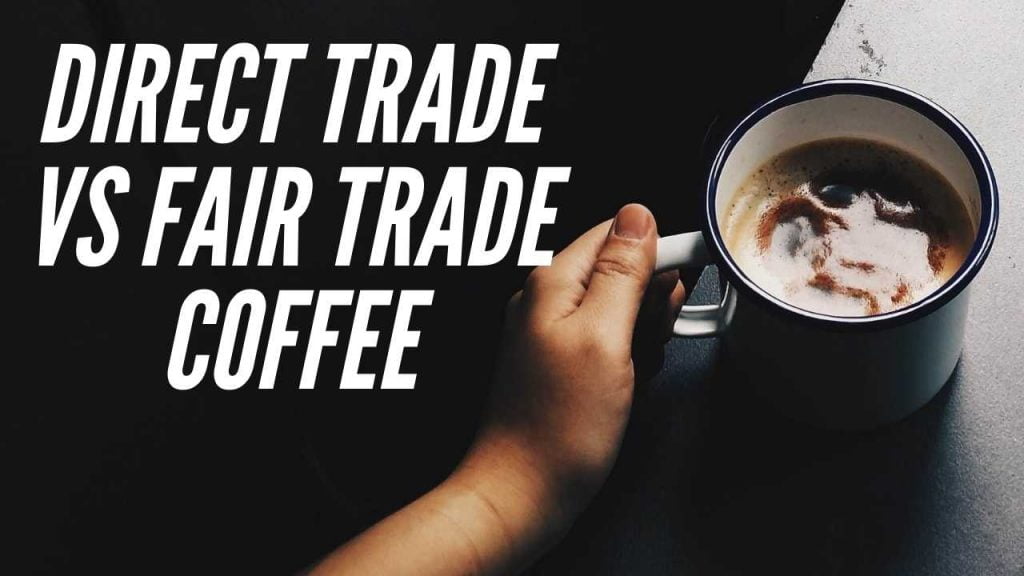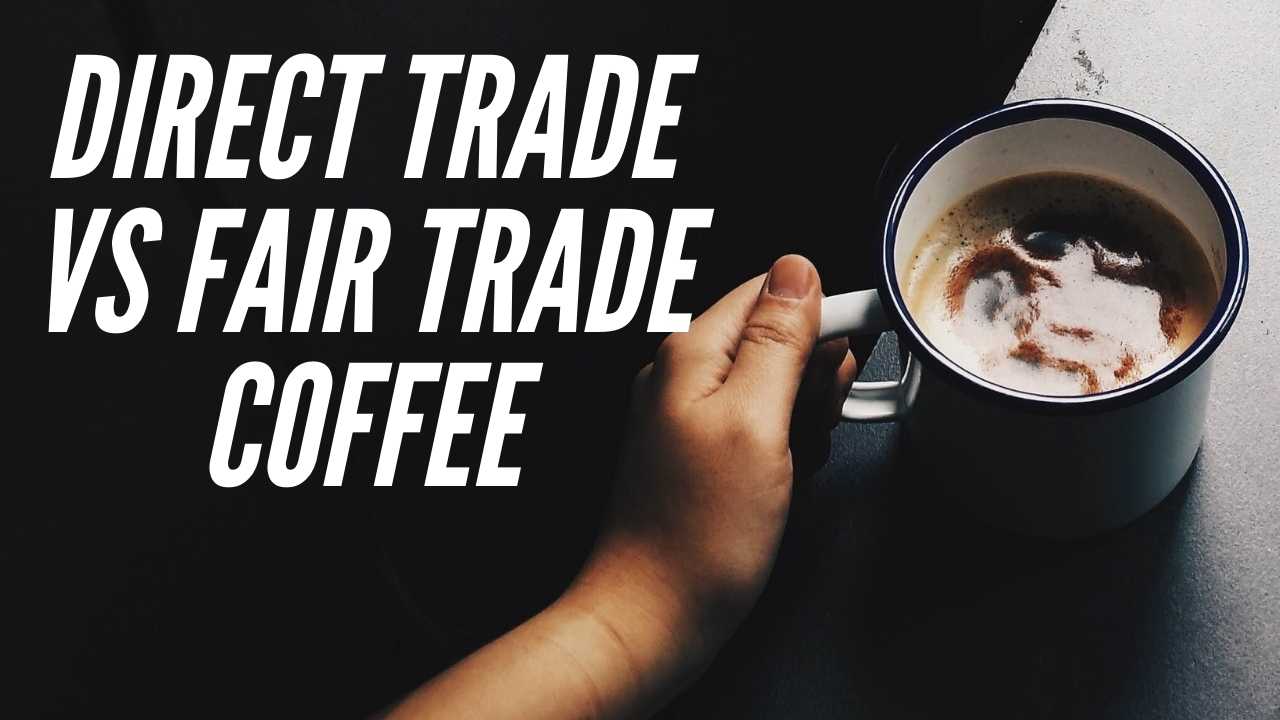If you’re a coffee enthusiast, then you’ve probably heard about the fair trade and direct trade coffee. Do you wonder what they are? How they differ? Are they competing against each other for getting the support of consumers? Well, there’s nothing like that. In fact, once you’ve read this article, you’ll get to know, both of them thrive on making the coffee world a better place. But they are entirely different from each other.
So, we will enlighten you about direct trade vs fair trade coffee and which one of them offers better sustainability and environmental protection? You’ll also get to know, do Fairtrade practices really helping the poor farmers, or is it just hyped for marketing?
But before we start, we would like to appreciate your globally conscious mind. Your purchasing habit truly matters to the actual people out there. So, let’s get into it and find out how can you make the world a better place for them by investing in your coffee beans.
Fair Trade Coffee Definition: Fair Trade Explained
First thing’s first. What is fair trade meaning? Well, the manufacturers earn this certification by adhering to certain rules and regulations. Before they get the license, they need to prove they’re ensuring fair wages for the coffee farmers.
Besides, they need to guarantee that they get their coffee beans from the place where sustainable and eco-friendly farming is practiced. On top of that, fairtrade regulation make sure your coffee is ethically produced by prohibiting child labour and forced labour.
To get the recognition, they need to apply for the certification, which comes with a fee. After they get scrutinized and passed for fulfilling the fair trade requirements, they are free to use the logo. Thus they get introduced in the marketplace as fairtrade coffee suppliers.
So, to get the fairtrade coffee, you need to pay a little more as they are ensuring the growers get their well-deserved decent income.
Here is the list of some fair trade certified coffees loved by the brew lovers out there:
- Larry’s Coffee
- Grumpy Mule
- Pure Vida Coffee
- Equal Exchange
- Cafédirect
- Higher Ground Roasters
- Café Mam
- Wandering Bear Coffee
- Rise Up Coffee Roasters
- Conscious Coffees
Benefits of Fair Trade Coffee
Now coming to the actual question, how and whom the fair trade helps? How it differs from non-fair trade coffee? Well, the coffee cultivation sites are one of the largest places of forced child labour. The International Labour Organization(ILO) estimates more than 250 million children are enslaved and trapped to cultivate our everyday commodities like coffee and chocolate.
They are forced into doing this work by slavery, human trafficking, and debt bondage. The work environment also has a long-term effect on their mental, physical, and moral-wellbeing. Again, adults are exploited too by making them work long hours with little or no pay. They are even exposed to a deadly pesticide which is both harmful to them and mother nature at the same time. Again, they are staying there in inhuman condition like living on rubbish and drinking dirty water alongside the animals.
So, the fair trade coffee roasters make sure the price you’re paying for your daily caffeinating makes sure that these poor farmers are being treated right. They make certain proper payment and healthy work environment for them. Moreover, they don’t get their beans from those who recruit the child labors. Now, you can see they are definitely putting effort into making this world a better place.
Direct Trade Definition
Now let’s get to know what is direct trade coffee? Direct trade is when the roasters or the suppliers purchase the beans straight from the producers. They believe in building a meaningful relationship by dealing with the growers. So, they are less of a certified organization more of an ideology.
They really care for your nice cup of brew. As a result, they ensure the quality beans by visiting the place and observing the whole process of cultivation. The farmers get just payment as there’s no mediator between the roasters and them. Their mission is to deliver eco-friendly beans by ensuring healthy environmental practices.
The Intelligentsia Coffee and Counter Culture Coffee are known to be direct trade coffee brands that are aiming for ethically sourced high-quality coffee beans.
The only limitation the direct trade has is there’s no standardization or any authority to investigate. So, they don’t have any liability. This sourcing process lacks transparency, having no way to measure how much directly trade it is.
In some countries, the roasters physically visit the farm and meet the farmers. But some suppliers just hire someone who went to the actual place.
Fair Trade vs Direct Trade: The Head to Head Comparison

Coming back to the main concern, which one offers greater sustainability, ethical sourcing practices and fair payment? Which one does this planet need more to stay green and happy? Well, here is a quick and brief comparison between direct trade vs fair trade coffee. Have a glance:
| Fair Trade | Direct Trade | |
|---|---|---|
| Fair Compensation | Yes | Some make sure. But not intended by all of them. |
| Bondage with Grower | No | Yes |
| Standardization | Yes. Certified by a dedicated authority upon investigating thoroughly. | No. So, no liability for adhering to their standard and commitment. |
| Transparency | Very Much. | Zero. |
| Quality | Not the main concern. | The top-most priority. |
| Cost | Can be more expensive to pay their farmers right. | Usually inexpensive as there’s no intermediary in the supply chain. |
Now that you’ve got a quick comparison chart here’s the more detailed explanation to clear any doubts.
Which one pays their growers more?
The main aim of the fair trade is to guarantee a decent wage, healthy work-environment without exploiting the basic human rights of the poor farmers. But reasonable compensation is not the main concern of direct trade.
As there is no man in between the roasters and the growers in direct trade, so the price is reasonable. So they can pay more to their producers. Intelligentsia Coffee guarantees to pay their farmers 25% more than the fair trade price. But to pay their farmers right, fairtrade beans comes at a higher cost.
Which one connects with the farmers?
Direct trade suppliers went to the farm, meet the farmer, witness the entire cultivating process just to deliver higher quality. So, they have better control over the whole thing and can facilitate green practices for the greater good.
On the other hand, fairtrade has no control over the beans they are getting. Thus, quality beans are not guaranteed by them.
Which one is better committed and transparent?
As to get the fair trade license, the roasters have to stick with certain principles, so they are always committed to maintaining the standard. Highly experienced inspectors from Fairtrade Certification checks and recognizes them.
Whereas, there’s no transparency and accountability in case of the direct trade because there’s no authority to set the standards and test them. So, their commitment to the cause can get weakened.
Frequently Asked Questions
The Bottom Line
Now you’ve learned about direct trade vs fair trade coffee, which one ensures better sustainability. Both of them has their upsides and downsides. There’s no doubt that both of them has the aim to change the world for better.
But they need far more monitoring and supervising. To support the rights of the underprivileged producers, they must stick to their purpose. So, buy from them who promote ethical sourcing and make sure the farmers are happy.

